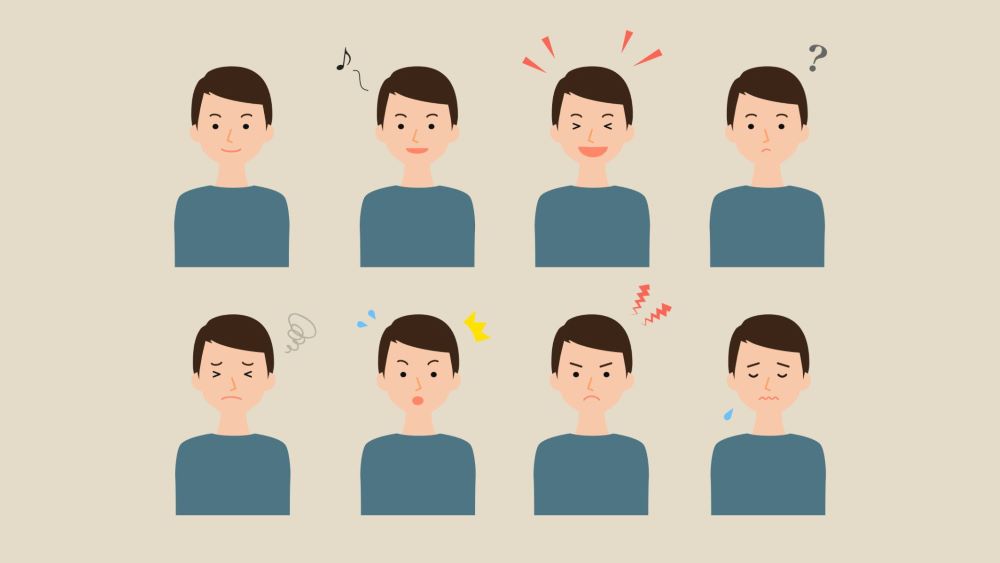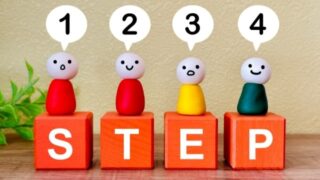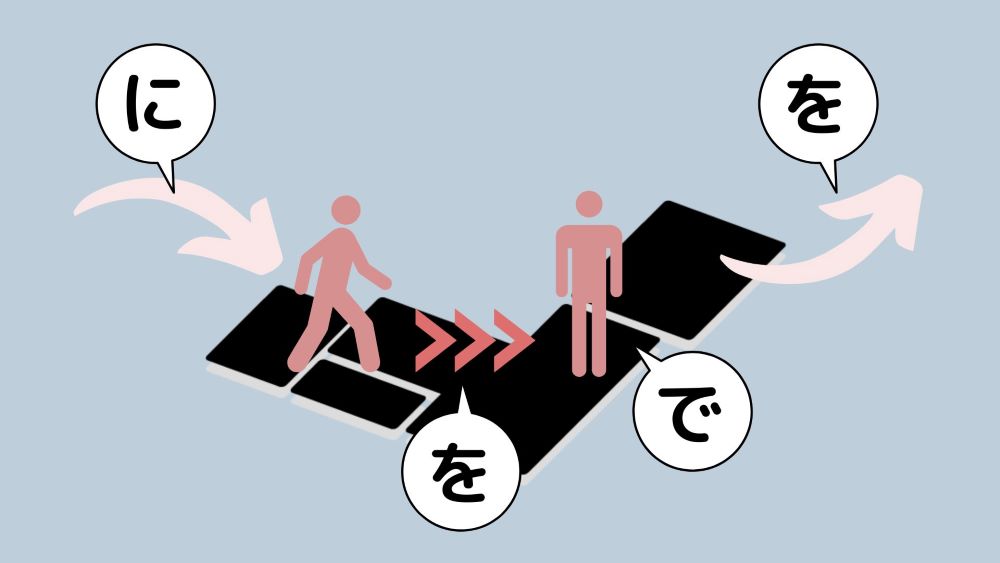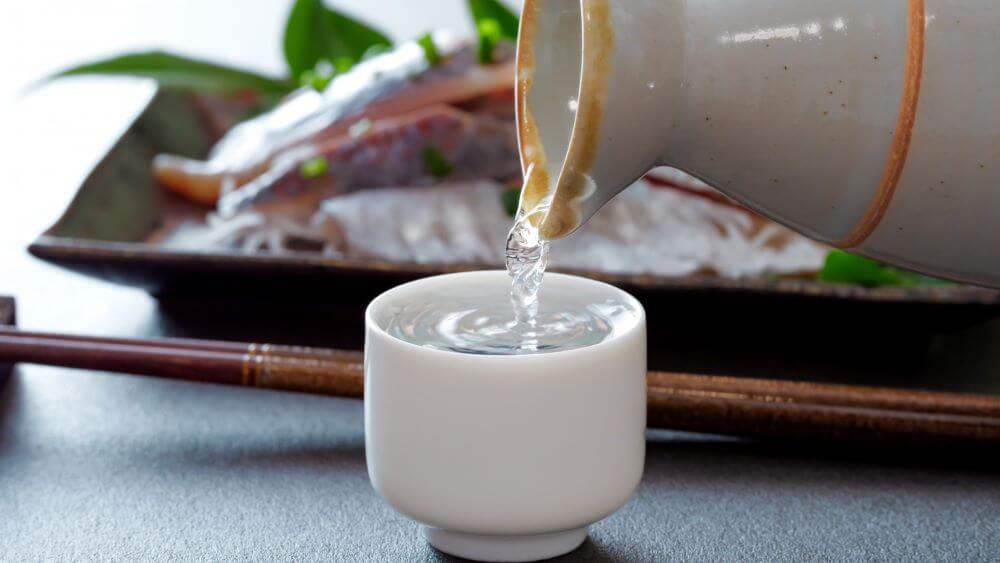Adjectives are a fundamental part of any language. Learning the basic adjectives can help you describe things, express your feelings, and make your conversations more vibrant. This guide introduces 50 essential adjectives for Japanese beginners, divided into “i adjectives” (い形容詞) and “na adjectives”. (な形容詞)
Download 50 essential adjective lists in PDF.
About Japanese Adjectives
Japanese adjectives are words that describe qualities of objects or people and can be grouped into two types. The first type, “i adjectives,” called い形容詞 [i keiyoushi] in Japanese, ends with “い.” Examples include “あたらしい (new)” and “おおきい (big).”
The other type is called “na adjectives,” な形容詞 in Japanese. When connecting them to a noun, you need to add “な” after the adjectives. For instance, if you want to say “famous person” using the adjective “ゆうめい (famous)” and a noun “ひと (person) “, you say “ゆうめいなひと” (famous + な + person).
Even words that end with “い” can sometimes be exceptions and grouped into “na adjectives.” A common example is “きれい (beautiful).” Despite the word is ending with “い,” it is a “na adjective,” so when you want to say “beautiful person,” you need to say “きれいなひと.” Many learners mistakenly use it as an “-i adjective” and say “きれいひと,” which is incorrect. Along with learning adjectives, it’s important to remember these exceptions.
50 Essential Adjectives to Learn First
i Adjectives (い形容詞)
| Japanese | Pronunciation | English | Example |
|---|---|---|---|
| 大きい (おおきい) | ookii | Big, Large | この家は大きい。 (This house is big.) |
| 小さい (ちいさい) | chiisai | Small, Little | この箱は小さい。 (This box is small.) |
| 新しい (あたらしい) | atarashii | New | この本は新しい。 (This book is new.) |
| 古い (ふるい) | furui | Old | この時計は古い。 (This watch is old.) |
| 高い (たかい) | takai | High / Expensive | この山は高い。 (This mountain is high.) この服は高い。 (This dress is expensive.) |
| 低い (ひくい) | hikui | Low | この椅子は低い。 (This chair is low.) |
| 安い (やすい) | yasui | Cheap | このリンゴは安い。 (This apple is cheap.) |
| 長い (ながい) | nagai | Long | この道は長い。 (This road is long.) |
| 短い (みじかい) | mijikai | Short | この箸は短い。 (These chopsticks are short.) |
| 多い (おおい) | ooi | Many | 花が多い。 (There are many flowers.) |
| 少ない (すくない) | sukunai | Few | 野菜が少ない。 (There are few vegetables.) |
| いい | ii | Good, Nice | このアイデアはいい。 (This idea is good.) |
| 悪い (わるい) | warui | Bad | この行動は悪い。 (This behavior is bad.) |
| 難しい (むずかしい) | muzukashii | Difficult, Hard | この問題は難しい。 (This problem is difficult.) |
| 重い (おもい) | omoi | Heavy | この荷物は重い。 (This luggage is heavy.) |
| 軽い (かるい) | karui | Light | このボールは軽い。 (This ball is light.) |
| 速い (はやい) | hayai | Fast, Quick | この電車は速い。 (This train is fast.) |
| 遅い (おそい) | osoi | Slow | この車は遅い。 (This car is slow.) |
| 遠い (とおい) | tooi | Far | この場所は遠い。 (This place is far.) |
| 近い (ちかい) | chikai | Near / Close | この駅は近い。 (This station is close.) |
| 暑い (あつい) | atsui | Hot (weather) | この夏は暑い。 (This summer is hot.) |
| 寒い (さむい) | samui | Cold (weather) | この冬は寒い。 (This winter is cold.) |
| 熱い (あつい) | atsui | Hot (objects) | このお茶は熱い。 (This tea is hot.) |
| 冷たい (つめたい) | tsumetai | Cold (objects) | この水は冷たい。 (This water is cold.) |
| 明るい (あかるい) | akarui | Bright | この部屋は明るい。 (This room is bright.) |
| 暗い (くらい) | kurai | Dark | この通りは暗い。 (This street is dark.) |
| 広い (ひろい) | hiroi | Wide / Spacious | この通りは広い。 (This street is wide.) この公園は広い。 (This park is spacious.) |
| 狭い (せまい) | semai | Narrow / Cramped | この廊下は狭い。 (This hallway is narrow.) |
| 嬉しい (うれしい) | ureshii | Happy (Emotion) | 私は嬉しい。 (I’m happy.) |
| 悲しい (かなしい) | kanashii | Sad | この映画は悲しい。 (This movie is sad.) |
| 楽しい (たのしい) | tanoshii | Fun | このゲームは楽しい。 (This game is fun.) |
| 優しい (やさしい) | yasashii | Gentle, Kind | この人は優しい。 (This person is kind.) |
| 忙しい (いそがしい) | isogashii | Busy | 彼女は忙しい。 (She is busy.) |
| 痛い (いたい) | itai | Painful | 首が痛い。 (My neck hurts.) |
| 美味しい (おいしい) | oishii | Delicious | この果物は美味しい。 (This fruit is delicious.) |
| 甘い (あまい) | amai | Sweet | このキャンディは甘い。 (This candy is sweet.) |
| 辛い (からい) | karai | Spicy | この料理は辛い。 (This dish is spicy.) |
| 欲しい (ほしい) | hoshii | Want | このノートが欲しい。 (I want this notebook.) |
| 可愛い (かわいい) | kawaii | Cute | この花は可愛い。 (This flower is cute.) |
| かっこいい | kakkoii | Cool | このスタイルはかっこいい。 (This style is cool.) |
na Adjectives (な形容詞)
| Japanese | Pronunciation | English | Example |
|---|---|---|---|
| 元気 (げんき) | genki | Healthy | 私は元気だ。 (I’m fine.) |
| 親切 (しんせつ) | shinsetsu | Kind, Helpful | この先生は親切だ。 (This teacher is kind.) |
| 便利 (べんり) | benri | Convenient | この店は便利だ。 (This shop is convenient.) |
| 幸せ (しあわせ) | shiawase | Happy (State) | 彼らは幸せだ。 (They are happy.) |
| 静か (しずか) | shizuka | Quiet | この街は静かだ。 (This town is quiet.) |
| 好き (すき) | suki | Like | この映画は好きだ。 (I like this movie.) |
| 嫌い (きらい) | kirai | Dislike | この音楽は嫌いだ。 (I dislike this music.) |
| 有名 (ゆうめい) | yuumei | Famous | この場所は有名だ。 (This place is famous.) |
| きれい | kirei | Beautiful | この景色はきれいだ。 (This scenery is beautiful.) |
| 簡単 (かんたん) | kantan | Easy | この問題は簡単だ。 (This problem is easy.) |
Basic Colours
When you add “い” to a colour name, it becomes an “i adjective.” But not all colours can follow this rule, so watch out!
| Japanese | Pronunciation | English | Example |
|---|---|---|---|
| 赤い | akai | Red | この花は赤い。 (This flower is red.) |
| 青い | aoi | Blue | 空は青い。 (The sky is blue.) |
| 黒い | kuroi | Black | この猫は黒い。 (This cat is black.) |
| 白い | shiroi | White | この壁は白い。 (This wall is white.) |
| 茶色い | chairoi | Brown | コーヒーは茶色い。 (The coffee is brown.) |
Understanding basic adjectives is essential to describing objects and people, and expressing emotions. These 50 adjectives will lay a solid foundation for your Japanese learning journey! Do not forget to download the adjectives list in PDF to accelerate your study!
You don’t know what to do next? Then, read this out!



